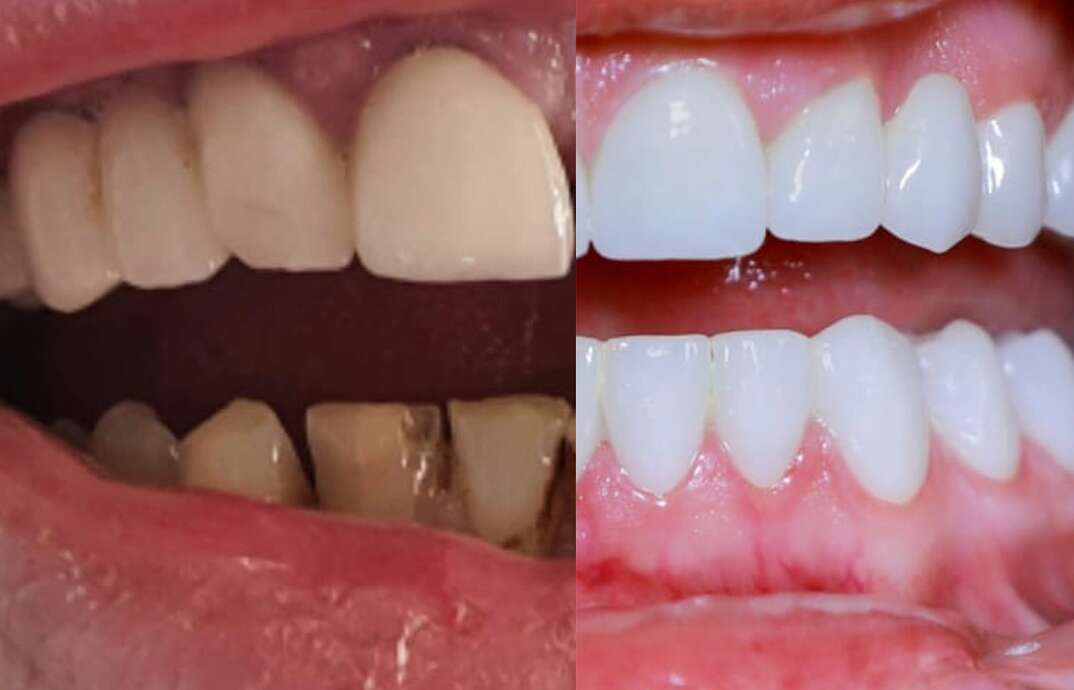- AppliancesElectriciansHVACLandscapingLocksmithPest ControlPlumbingRenovationRoofingT V RepairAll Home Improvement
- Car AccidentClass ActionCorporate LawCriminal DefenseDivorce LawEmployment LawFamily LawFinancial LawLegal AidMedical Injury LawyersMedical MalpracticeReal Estate LawWater Fire RestorationAll Legal
- InvestmentRetirementAll Finance
- Animal InsuranceAutoGeneral InsuranceHealth PolicyHome RentersAll Insurance
- DentalHealth SpecialistsAll Medical
- Animal CareVeterinaryAll Pets
- Auto GlassTowingAll Automotive
A Guide to Teeth Whitening Treatments

Maybe you love to start the day with a cup of tea or coffee, or perhaps you enjoy spaghetti dinners with red wine. As a result, over time, you've started to notice that your smile isn't as bright as it used to be.
Unfortunately, some of your favorite food and drinks can stain your teeth. There are many options available for professional and at-home teeth whitening.
There are many methods for whitening teeth. Some popular teeth whitening methods are:
- Laser light treatments
- Professional bleaching trays and gel
- Drugstore bleaching kits
- Whitening strips
- Whitening toothpaste
The best option for you depends on your dental history, budget and desired results.
What Is the Process Like for Each of These Methods?
Understanding the process for each whitening method can help you decide which treatments might work best for you.
Laser Teeth Whitening
A dentist can lighten your teeth in their office using laser lights and special tooth gel. This treatment requires one or more office visits. The dentist will clean and dry your teeth. Barriers are used to protect your gums and keep your lips open during the procedure.
Laser whitening treatments typically use a hydrogen peroxide gel that the dentist will apply to your teeth. A powerful laser light is pointed at your teeth for up to an hour. The light heats the gel and creates a chemical reaction that can rapidly whiten teeth.
Professional Bleaching Trays
Custom bleach trays are another option for professional teeth whitening. Your dentist will create an impression of your teeth with plaster, and a dental lab can use the impression to form a custom bleaching tray that perfectly fits your teeth.
The dentist will give you bleaching gel to use with the trays at home. The gel is usually made with carbamide peroxide and is stronger than whitening agents you can buy in stores. You'll place gel into the trays and wear them according to the dentist's instructions.
Drugstore Teeth Whitening Kits
Whitening kits are also available at drugstores without a prescription and work similarly to bleaching kits from your dentist. However, the trays aren't custom-made, making the bleach application more challenging. These kits may use hydrogen peroxide, and some kits now come with LED lights to help the whitening process.
Whitening Strips
Whitening strips use hydrogen peroxide on a disposable strip for easier application. You dry your teeth and stick the strip to them for the required amount of time.
Whitening Toothpaste
Whitening toothpaste is easy to use, and many options can replace your regular toothpaste. This type of toothpaste uses hydrogen peroxide, charcoal and other ingredients to remove stains over time.
More Related Articles:
- How Often Should You Go to the Dentist?
- Do Dentists Offer Payment Plans?
- Everything You Need to Know About Emergency Dentists
- How Much Does a Dental Cleaning Cost?
- How Much Do Dentures Cost?
How much teeth whitening costs depends on the method you pick. There are significant price differences between some options:
- Laser whitening usually costs up to $1,200 (CAD 1,600).
- Custom-made bleaching trays can cost $300 to $600 (CAD 400 to 800), and you'll need to buy additional bleach when you run out.
- Drugstore bleaching kits range from around $50 to $100 (CAD 70 to 130), depending on the brand and the features you want.
- Whitening strips vary in price but can cost around $16 (CAD 21) for five treatments.
- Whitening toothpaste tends to cost just a little more than plain toothpaste.
Which Method Produces the Best Results?
Laser whitening produces dramatic, immediate results that you aren't likely to see with other methods. The laser whitening process can immediately remove surface stains from red wine, coffee and food.
Bleaching kits from your dentist also produce quick results since the whitening gel is strong and the trays fit your teeth closely. However, you may have to do several treatments before you see results. Drugstore whitening options also remove stains but may take longer.
Whitening toothpaste can remove stains, but the results are usually gradual. You may need to use the toothpaste for several weeks or longer before noticing a difference.
Whitening treatments don't whiten teeth that are darkened due to medication or injuries. Bleach also only works on natural teeth and generally can't be used to change the color of fillings, crowns and other dental work.
What Are the Potential Side Effects of Teeth Whitening?
The primary side effect caused by all teeth whitening treatments is tooth sensitivity. Stronger treatments, such as laser whitening, tend to cause more sensitivity. Whitening gels can also cause pain and injury to gums and lips. This risk can be reduced by carefully applying bleaching gels or using whitening strips instead.
You can also avoid unnecessary risks by sticking to products provided by your dentist or approved by the American Dental Association. Speaking to your dentist before starting a whitening treatment is a good idea, even if you choose an at-home method.
All CAD conversions are based on the exchange rate on the date of publication.
Elocal Editorial Content is for educational and entertainment purposes only. The information provided on this site is not medical advice. Editorial Content is not intended to be used for diagnosis or treatment. We are not physicians or a substitute for advice from a physician. The opinions, beliefs and viewpoints expressed by the eLocal Editorial Team and other third-party content providers do not necessarily reflect the opinions, beliefs and viewpoints of eLocal or its affiliate companies. Use of the Blog is subject to the
Website Terms and Conditions.The eLocal Editorial Team operates independently of eLocal USA's marketing and sales decisions.



